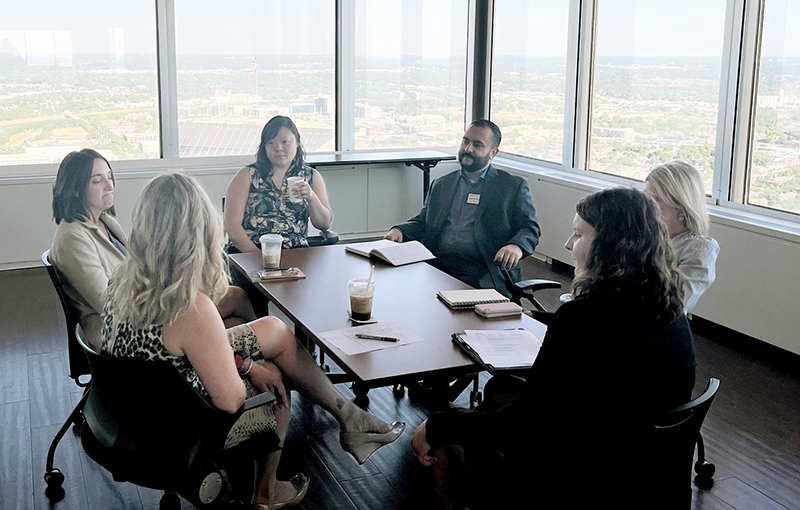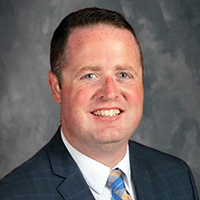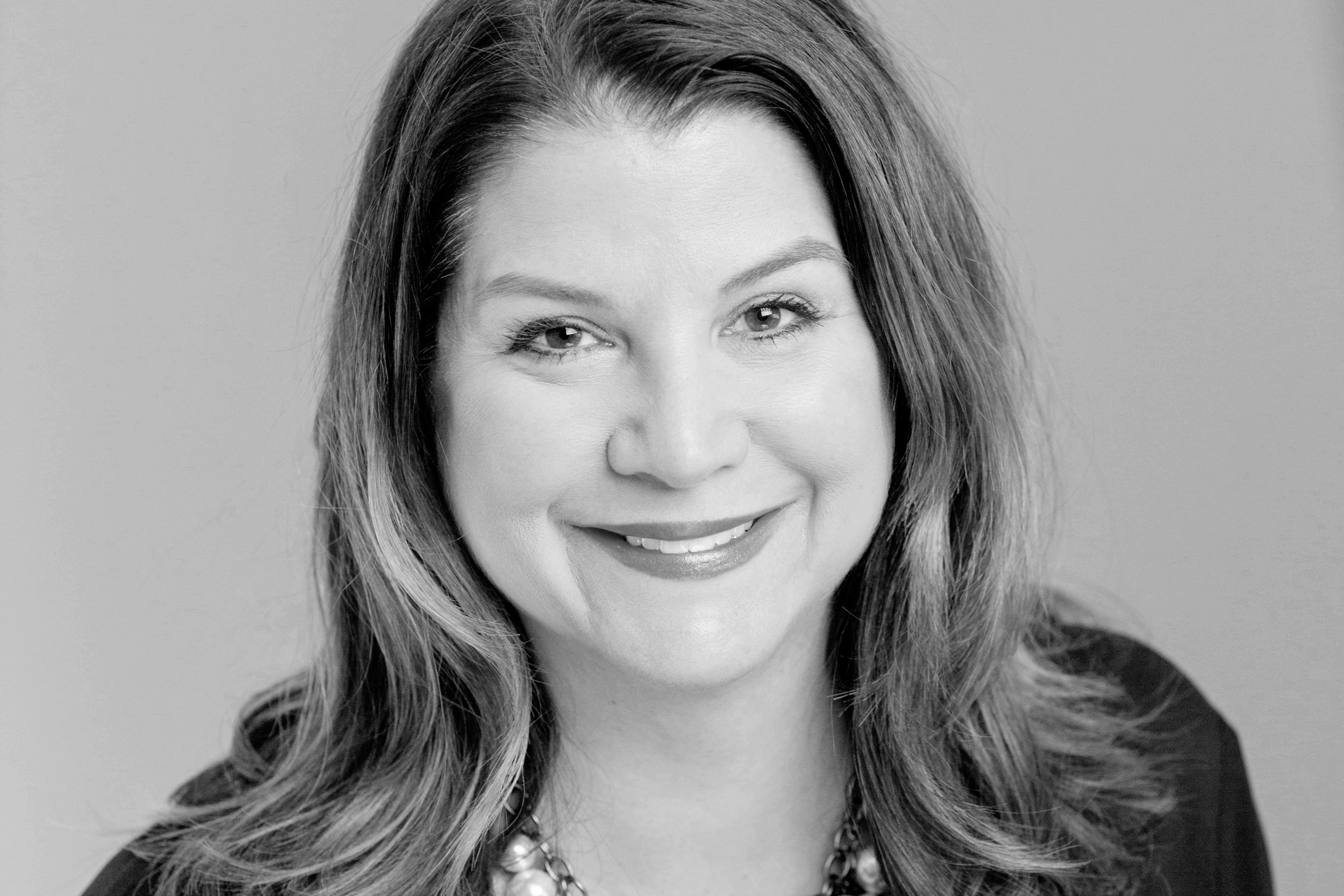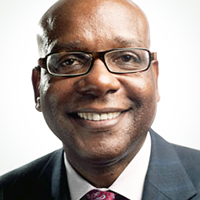Good News & Good Views in July Mutz Class

This blog was written by Jonathon Maple, executive director of Margaret Mary Health Foundation (Ripley County), to provide an inside look into his Mutz Philanthropic Leadership Institute class.
The July 13 Mutz Philanthropic Leadership Institute class started with view that the majority of the class had never seen. Being on the 48th floor of the Salesforce Tower (Goelzer Investment Management graciously hosted us for the day) allowed the class to get a 360-degree view of Indianapolis and communities beyond. After taking a few selfies, saying good morning, and allowing the class to figure out the elevator, the class convened.
The energy in the room was palpable as the ‘wow factor’ continued for the group. “You can only go down from here,” Holly Davis, IPA vice president of external relations, joked in her introduction. Of course, she was referencing the views and being on the top floor, but after today’s session, one could say there was a double meaning—what an incredible day.
The topic for the day was "The Private Sector as a Force for Good" and we began with a discussion on how it can indeed be a positive influence in our communities. We then moved to the topic of Environmental Social Governance (ESG). Elizabeth Coit, executive director of Marian University’s Walker Center for Applied Ethics, and Kathy Pedrotti Hays, owner of Pedrotti Hays Inc., were very passionate about ESG. They insisted capitalism can be a game changer in our world. “Capitalism is a force for good,” Hays said. A few eyebrows raised, but in the course of the discussion, the class learned capitalism has truly gotten a bad rap over the years.
“Seventy-five percent of millennials would take a pay cut to work for a company with strong Corporate Social Responsibility." - Kathy Pedrotti Hays
We broke into small group exercises. Each group was given a topic—crime reduction, workforce development, or early childhood education—and had to ask if business/philanthropy should be a driver, passenger, or in the backseat. My group was given workforce development. We chose to use a ‘bus’ analogy: we’re all on the trip together, taking turns. We had a very fruitful conversation. The reality is everyone needs a seat on the bus to tackle large social and economic issues.
ESG is becoming increasingly important as people view their investments and how they evaluate companies. Corporate Social Responsibility (CSR) plans are becoming incredibly important. “Seventy-five percent of millennials would take a pay cut to work for a company with strong Corporate Social Responsibility,” Hays said.
So how do we make a difference? We looked at companies who take ESG and CSR incredibly seriously, including Eli Lilly and Company, Cummins, and Cook Medical. Businesses continue to investigate B Corp certifications. The overarching inspirational point in the morning was moving toward the idea of conscious capitalism—business being a force for good. When business partners with philanthropy, we can do so much.
The afternoon kicked off with some high-level financial information conveyed by Gavin Stephens and Janet Sweet of Goelzer Investment Management. Each discussed how ESG is analyzed by various companies.
Sweet noted that 71% of investors want to make a positive impact with their investment and 81% of those want their investment to match their values. All the more reason for companies to spend time and energy towards developing its own ESG. “I could spend all day listening to that presentation,” Steve Holwerda of EdChoice (and one of my classmates) said as the session ended.
John Thompson, chairman and CEO of First Electric Supply, came in to talk about his experience as a business leader and philanthropist—and he has lots of it. Being on multiple boards, including the Indiana Chamber of Commerce and Riley Children’s Foundation, he inspired us all to get involved. It is the duty of business to give back and support the community, Thompson said. He discussed the wealth gap and how this systemic issue continues to impact us today.
Thompson encouraged us to look at ways to give back. He is partnering with companies to allow all people to become investors. “Allow people to participate and become wealthy the way the wealthy becomes wealthy,” Thompson said. He later added, “Remember the multiplier that exists when you help one person.” What an incredible message. He inspired those of us in philanthropy to continue to make a difference.
“Remember the multiplier that exists when you help one person.” - John Thompson
As the energy was at an all-time high, it only made sense to bring Dr. Allison Barber with the Indiana Fever into the room, given her rich career in the areas we were covering that day - nonprofits, government, and philanthropy. As one looked throughout the room, you could almost see tears as she discussed her past careers, successes, and failures. Barber’s optimism was contagious.
She praised the philanthropists in the room. “Your success helps other people succeed,” Barber said. One of the biggest takeaways was the amount of power we give people to put a voice in our head. “Who will you let have a voice in your head?” she said.
I rode the elevator down with Dr. Barber and talked about her impressive career. She told me as we ended our conversation, “Keep doing good—you never know what will happen next.” I wrote that on my office whiteboard as a daily reminder. Wouldn’t the world be a better place if we all had this motto?



